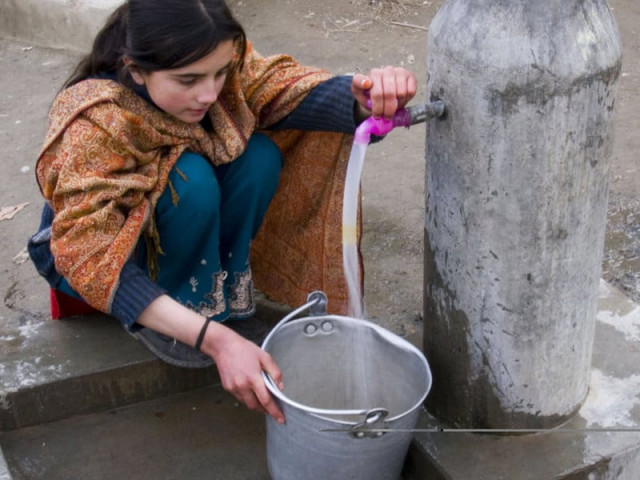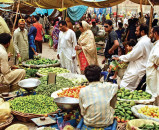100% water in Gilgit unfit for drinking
All water samples collected from the scenic city of Gilgit have been found to be contaminated

All water samples collected from the scenic city of Gilgit have been found to be contaminated, rendering the water unfit for drinking. Similarly, water samples from two cities in Sindh Mirpurkhas and Shaheed Benazirabadare also completely unsafe for human consumption.
According to details presented by the Ministry of Water Resources in the National Assembly, 94% of drinking water in Multan, 93% in Karachi, and 92% in Badin is contaminated.
In Bahawalpur, 76% of the water is polluted, while 83% of water in Sargodha, 59% in Faisalabad, and 60% in Sheikhupura is unfit for drinking.
In Abbottabad and Khuzdar, 55% of the water is contaminated, while in Loralai and Quetta, it is 59%. In Hyderabad, 80%, Sukkur 67%, and Muzaffar 70% of the drinking water is unsafe.
In its written response, the ministry said the Pakistan Council of Research in Water Resources (PCRWR) regularly provides water monitoring results to the provinces nationwide.
Following the 18th Amendment, the responsibility for providing safe drinking water and improving its quality rests with the provinces.
A report published in The Express Tribune last November revealed that the tap water supplied to the residents of Karachi, the country's largest city, is severely contaminated and unfit for human consumption.
The report, citing a chemical analysis conducted at the Karachi Water and Sewerage Corporation (KWSC) laboratory, indicated that water samples collected from the city contained E coli, coliform bacteria, and other harmful pathogens in the tap water.
KWSC teams collected 137 water samples from different neighborhoods of the city for chemical analysis. Some 90% of these samples lacked chlorine, according to the lab report. This lack of chlorine might explain why 11 people died from the brain-eating amoeba, Naegleria fowleri, last year.
The lab report also highlighted that water samples taken from Faqir Muhammad Goth in Malir district of the city contained dangerous pathogens such as E coli and Vibrio cholera, making the water unfit for drinking or cooking.
These bacteria are typically linked to sewage contamination, while coliform bacteriaassociated with human and animal wastewere also detected in the tap water.



















COMMENTS
Comments are moderated and generally will be posted if they are on-topic and not abusive.
For more information, please see our Comments FAQ